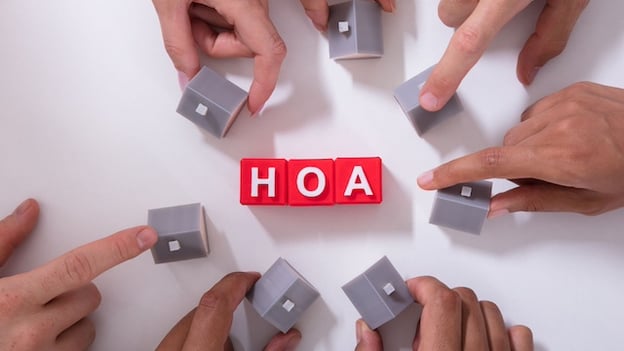For many people, one of the biggest perks of living in an HOA community is the fact that they are governed by a set of rules. This generally means that all homeowners are responsible for maintaining the aesthetic of their homes and yards. As a result, upholding the rules of the community is one of the biggest responsibilities of an HOA board. However, this can also be one of the biggest challenges.
Luckily, there are many ways that board members can effectively govern their associations to ensure that everyone is treated fairly and that all residents can enjoy the community Let’s get started!
What is a Code of Ethics for HOA Boards
A code of ethics is a set of principles and guidelines that govern the behavior and decision-making of board members within the community. It serves as a framework for ensuring that board members act with integrity, transparency, and fairness while fulfilling their duties and responsibilities.
Below are some of the common principles of HOA code of ethics:
Transparency
Board members are expected to conduct their affairs openly and transparently, providing residents with access to information about association operations, finances, and decision-making processes.
Fairness and Equality
Board members should treat all residents fairly and equally, without discrimination or favoritism. Decisions should be made impartially, with consideration for the best interests of the entire community.
Conflict of Interest
Board members are required to avoid conflicts of interest and disclose any potential conflicts that may arise due to personal, financial, or professional relationships. They should refrain from engaging in activities that could compromise their ability to act in the best interests of the community.
Compliance with Laws and Regulations
Board members must comply with all applicable laws, regulations, and governing documents, including the association’s bylaws, covenants, conditions, and restrictions (CC&Rs), and state or local statutes.
Confidentiality
Board members are expected to handle confidential information with discretion and not disclose it to unauthorized individuals. This includes information obtained during board meetings or in the course of board duties.
Respect and Professionalism
Board members should interact with residents, fellow board members, and vendors in a respectful and professional manner, fostering a positive and collaborative community environment.
The Difference Between Code of Ethics and Code of Conduct
A code of ethics outlines the fundamental principles and values that govern the behavior and decision-making processes of board members. It typically delineates expectations regarding honesty, integrity, fairness, and accountability in fulfilling their duties to the community.
On the other hand, a code of conduct provides specific guidelines and rules for board members to follow in their day-to-day operations and interactions within the association. It lays out acceptable and unacceptable behaviors, procedures for conflict resolution, confidentiality protocols, and standards for professional conduct.
While the code of ethics sets overarching principles, the code of conduct translates these principles into actionable behaviors, ensuring consistency and integrity in the board's actions and interactions with residents.
Importance of a Code of Ethics for HOA Board Members
Having a code of ethics sets clear standards for behavior, emphasizing honesty, transparency, and accountability in all actions taken by board members. By providing a framework for decision-making, ethics guide board members to prioritize the community’s collective interests over personal agendas or biases. This promotes fairness and impartiality in decision-making processes, ultimately fostering trust and confidence among residents.
On top of that, a code of ethics establishes accountability mechanisms, holding board members responsible for upholding ethical standards and fulfilling their duties to the community. This not only helps mitigate legal and reputational risks for the association but also enhances its standing within the broader community.
Developing an Effective Board Code of Ethics
Developing an effective code of ethics for your HOA board involves several key steps to ensure clarity, relevance, and adherence among board members. Here's a comprehensive approach to developing such a code:
Identify Core Values
Begin by identifying the core values that should guide the behavior and decision-making of board members. These values might include integrity, honesty, transparency, fairness, accountability, respect, and professionalism. Discuss with stakeholders such as residents, legal advisors, and community leaders to ensure alignment with community expectations and legal requirements.
Draft Clear and Concise Standards
Develop clear and concise standards of conduct based on the identified core values. Define expectations for ethical behavior in various aspects of board responsibilities, including financial management, conflict resolution, communication, decision-making, and interaction with residents and vendors. Ensure that the language used is easily understandable and actionable.
Incorporate Legal and Regulatory Requirements
Make sure that your code of ethics includes all relevant laws, regulations, and governing documents for the association. Consider consulting legal advisors or professionals familiar with HOA governance to ensure that the code addresses legal and regulatory obligations effectively.
Establish Enforcement Methods
Outline methods for enforcing the board’s code of ethics and addressing violations. Define the process for reporting ethical concerns or breaches of conduct, as well as the steps for investigating and resolving such issues. Establish appropriate consequences for violations, which may include warnings, sanctions, or removal from the board, depending on the severity of the offense.
Provide Training and Education
Implement training and education programs to familiarize board members with the code of ethics and ensure understanding of their obligations. Offer resources, workshops, or seminars on ethical decision-making, conflict resolution, and communication skills to support board members in upholding ethical standards effectively.
Regular Review and Revision
Commit to regular review and revision of your board’s code of ethics to ensure its ongoing relevance and effectiveness. Solicit feedback from board members, residents, and stakeholders to identify areas for improvement or updates. Adapt the code as needed to reflect changes in the association’s governance structure, community dynamics, or legal requirements.
Lead by Example
Board leaders should lead by example and demonstrate a commitment to upholding the code of ethics in their own behavior and decision-making.
Enforcing the HOA Board of Directors Code of Conduct
Now that we’ve gone over some of the things you can do to develop a solid code of ethics, it’s time to talk about how these ethics can be enforced. After all, your code will only have a positive impact on your board – and your community as a whole – if it’s properly enforced.
If your code of ethics isn’t properly enforced, it could lead to negative consequences within the board and among the rest of the community. Your board may want to consider starting an ethics committee to help ensure that the code is upheld.
Tips for Upholding the Board Code of Ethics
Commitment from Leadership
Board members should demonstrate a strong commitment to upholding the code of ethics. Leaders should set the tone by adhering to ethical standards themselves and encouraging others to do the same.
Communicate Clearly
Ensure that all board members understand the provisions of the Code of Ethics. Provide clear explanations of the expected behaviors, ethical principles, and potential consequences for violations.
Create Conflict Resolution Processes
Establish clear processes for addressing conflicts of interest or ethical dilemmas that may arise. Provide channels for board members to seek guidance or escalate concerns, and ensure that conflicts are resolved fairly and transparently.
Don’t Enforce the Code Selectively
Enforce the Code of Ethics consistently and impartially. Investigate reported violations promptly, gather evidence objectively, and apply consequences fairly and proportionately.
Resources and Support for HOA Board Members
The exact resources that are available to you will depend on where you’re located. However, there are some general options that you may want to consider taking advantage of.
HOA Board Member Training Programs
Look for training programs specifically tailored for HOA board members. These programs often cover topics such as governance best practices, conflict resolution, ethical decision-making, and the responsibilities outlined in the code of ethics.
HOA Management Companies
Many HOA management companies offer resources, training, and support for board member. They can provide guidance on governance issues, compliance with legal requirements, and ethical considerations.
For example, RealManage offers continuing education opportunities for board members via webinars, blog posts, and other channels. Our management team also works directly with our clients to ensure that the board – and the association as a whole – is operating as smoothly as possible.
Industry Associations
Organizations like the Community Associations Institute (CAI) offer educational resources, seminars, webinars, and networking opportunities for board members. They provide valuable insights into governance practices, ethical standards, and community management.
Legal Counsel
Establish a relationship with a qualified attorney experienced in HOA law. Legal counsel can provide advice on interpreting and applying the Code of Ethics, handling conflicts of interest, and ensuring compliance with relevant laws and regulations.
State-Specific Resources
Check for resources and support available at the state level, as laws and regulations governing HOAs can vary by state. State housing departments, attorney general offices, or local associations may offer guidance and resources for board members.
Building a Legacy of Ethical Leadership in Your HOA
By adhering to ethical standards, HOA board members can cultivate an atmosphere of trust, transparency, and accountability that benefits everyone involved. With the help of things such as training programs, industry associations, and legal counsel, board members can equip themselves with the knowledge and support needed to navigate the complexities of ethical dilemmas confidently.




